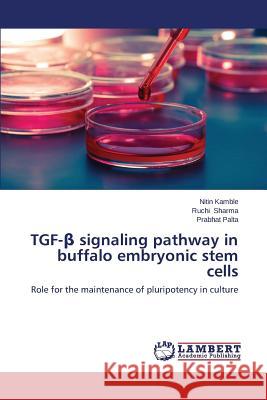TGF-β signaling pathway in buffalo embryonic stem cells » książka
TGF-β signaling pathway in buffalo embryonic stem cells
ISBN-13: 9783659555756 / Angielski / Miękka / 2014 / 60 str.
ES cells have very many varied applications for farm animals as well as humans, like enabling studies on the fundamental events in embryonic development, production of therapeutic delivery systems, gene targeting, and regenerative medicine. Production of pluripotent ES cells from farm animal species will have a big influence on the genetic modification of these animal species. Availability of ES cells is expected to be especially useful in cloning technology. Also, in the context of gene targeting, use of ES cells could overcome current limitation on efficient gene transfer by providing an abundance of stem cells to be genetically manipulated by using conventional recombinant DNA techniques. Very limited information is available on the signaling pathways that govern the self renewal of ES cells while maintaining them in an undifferentiated and pluripotent state. Among other important regulators, members of the transforming growth factor- (TGF- ) super-family."
ES cells have very many varied applications for farm animals as well as humans, like enabling studies on the fundamental events in embryonic development, production of therapeutic delivery systems, gene targeting, and regenerative medicine. Production of pluripotent ES cells from farm animal species will have a big influence on the genetic modification of these animal species. Availability of ES cells is expected to be especially useful in cloning technology. Also, in the context of gene targeting, use of ES cells could overcome current limitation on efficient gene transfer by providing an abundance of stem cells to be genetically manipulated by using conventional recombinant DNA techniques. Very limited information is available on the signaling pathways that govern the self renewal of ES cells while maintaining them in an undifferentiated and pluripotent state. Among other important regulators, members of the transforming growth factor-β (TGF-β) super-family.











